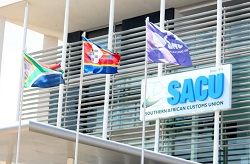
Benefits of mining questioned
 The contributions of the mining industry to the economy remains questionable with many wondering whether the income and revenue generated by the industry really benefit the local people and not only foreign investors.
The contributions of the mining industry to the economy remains questionable with many wondering whether the income and revenue generated by the industry really benefit the local people and not only foreign investors.
At a recent stakeholder presentation held by the Chamber of Mines, independent economist, Robin Sherbourne stated that mining contribution to the economy must be seen against the backdrop of international commodity prices.
The Namibian mining industry has been dominated by foreign companies for years and Sherbourne said that this was the case because foreign countries have the money and expertise to find and develop Namibia’s mineral sources. “However, these foreign investors must be allowed to make a financial return on their investments commensurate with the risks they are taking,” Sherbourne stated.
Namibia has an abundance of mineral resources but just how good are the country’s known mineral resources? Resource grade, according to Sherbourne, is an important determinant of cost. When compared to other diamond mining countries, Namibia’s diamond resource is of high quality but the quantity is relatively small.
Also compared to other countries such as Canada, Niger, Kazakhstan and Australia, Namibia’s uranium resource is of lesser quality. Known gold and copper resources are also limited.
Sherbourne emphasised that even though Namibia’s mineral resources are not especially large or high in quality by international standards, international mining companies are still keen to come to Namibia because of the combination of mineral resources and precious investment environment.
In 2010, the mining industry contributed 8.8 % to the total GDP while manufacturing, which involves copper smelting, zinc refining and diamond cutting contributed a total of 14.4%.
Sherbourne concluded that even though mining in Namibia will never be the source of hundreds of thousands of jobs, it remains the bedrock of the Namibian economy.












































